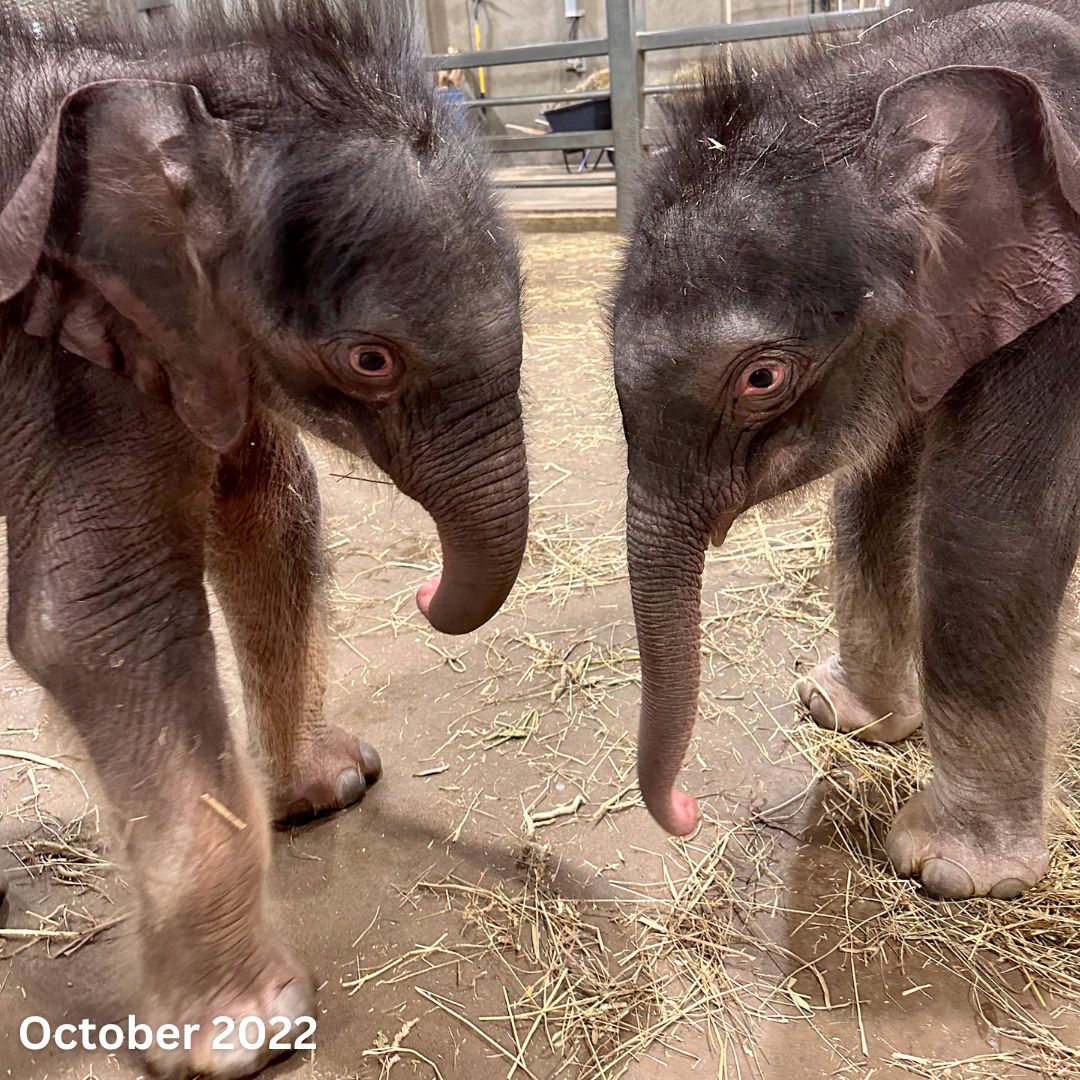- Elephant Gestation Period
- Veterinary Observations and Milestones
- Importance of Monitoring Elephant Pregnancy
- Comparative Gestation Periods in Mammals
- Conservation Implications and Challenges
The gestation period of elephants is an incredible testament to their evolutionary adaptations. At an average of 22 months, it is the longest of any mammal on land or sea. This extended period is crucial for the development of the calf, ensuring it is born robust and relatively mature compared to other mammals.
Veterinary observations mark key milestones during an elephant’s pregnancy. Around 22 months, you will observe specific behaviors and physical changes in expectant mothers. For instance, the ears of an elephant named Tukada began to fold back within this timeframe. These physical markers are critical for zoo management and conservationists, providing timely indicators of pregnancy and impending birth progression.
The pregnancy of Mali, the mother of twins Yaad and Tukada, demonstrates the importance of vigilant monitoring during these extensive gestation periods. Surveillance helps in taking preemptive actions to facilitate safe pregnancies and births, which is essential when dealing with such a long gestation time. This vigilance is also essential for ensuring the health of both mother and calf, adapting care protocols as necessary throughout the pregnancy.
Compared to elephants, other large mammals have significantly shorter gestation periods. For example, the sperm whale’s gestation lasts approximately 16 months. This difference underscores the unique reproductive adaptations of elephants, geared towards giving the calf a better chance of survival in challenging environments. Longer gestations allow for more significant development within the womb, thereby equipping newborns with the necessary physiological traits to thrive.
Elephant conservation efforts are inherently complicated by their lengthy gestation periods. The extended pregnancy means that population recovery can be slow, making every birth crucial for the species’ survival. Effective zoo management is vital in conservation, ensuring that pregnant elephants and their calves receive specialized care. This care includes a balanced diet, adequate space for movement, and regular health check-ups to monitor the well-being of both mother and fetus. Scientific advancements in reproductive health and care methodologies are crucial in this regard.
The focus on maintaining healthy pregnancies also extends to tracking genetic diversity within captive populations. Given the lengthy gestation, each calf’s birth represents a significant genetic contribution to the population. Managing this genetic diversity is key to preventing inbreeding and ensuring robust future generations. Methods such as DNA sampling and genetic mapping are employed to monitor and manage the genetic health of captive elephant populations.
Furthermore, the socio-economic implications of elephant pregnancies cannot be understated. Elephants are one of the main attractions at zoological parks worldwide, drawing visitors and generating revenue that supports conservation projects. Thus, the successful birth of elephant calves is not just a triumph of biological significance, but also a win for the broader conservation efforts funded by zoos.
Extensive gestation periods also pose logistical challenges. For field researchers and wildlife conservationists, tracking a pregnant elephant over nearly two years in the wild requires sustained effort and resources. Field studies on elephants benefit from the integration of technology, such as GPS collars and motion-sensor cameras, to monitor pregnant elephants in their natural habitat without causing them undue stress. Data from these studies enrich our understanding of elephant behavior and inform better practices in both captive and wild settings.
The longevity of elephant gestations also parallels the investment required for their care. Zoos and conservation programs must allocate resources for the long term, ensuring that pregnant elephants have access to medical care and nutrition tailored to their needs.
In essence, elephants’ extraordinary gestation period is a window into their unique biological makeup and the intricate care required to support their reproductive health. The knowledge gleaned from observing and caring for elephants during their pregnancies is invaluable, informing practices that enhance conservation efforts and contribute to the well-being of these majestic creatures.
By understanding and appreciating these extensive gestation periods, we can better advocate for and contribute to the conservation programs aimed at preserving one of the planet’s most iconic species. From veterinary observations to the broader implications on conservation, every facet of elephant pregnancy underscores the need for informed care and dedicated effort to safeguard their future.
*****
Source Description
22 Months of
Somewhere between November and December 2023 you can see Tukada’s ears start to fold back.
The twins’ mother Mali was pregnant with Yaad and Tukada for around 22 months! Elephants have the longest gestation period of any mammal, land or sea. Elephants are pregnant on average for 22 months. In comparison, a sperm whale’s gestation period is only 16 months!


